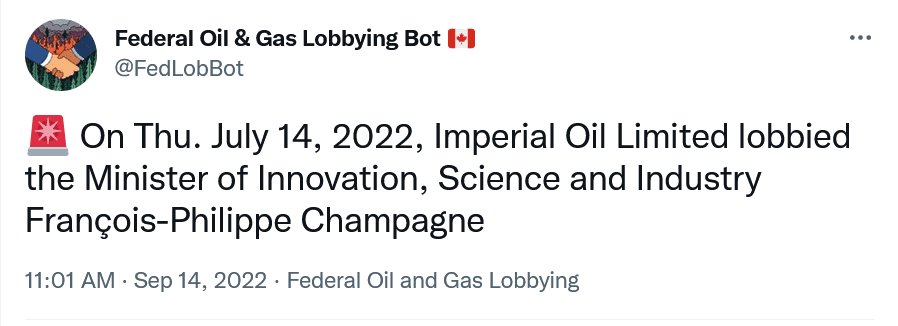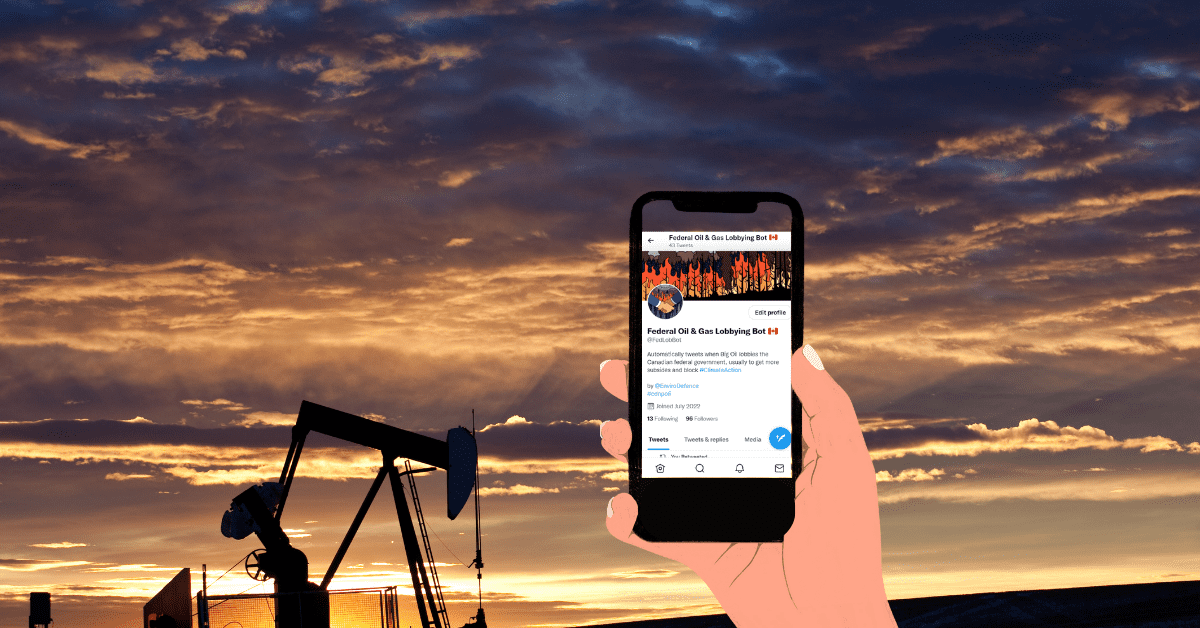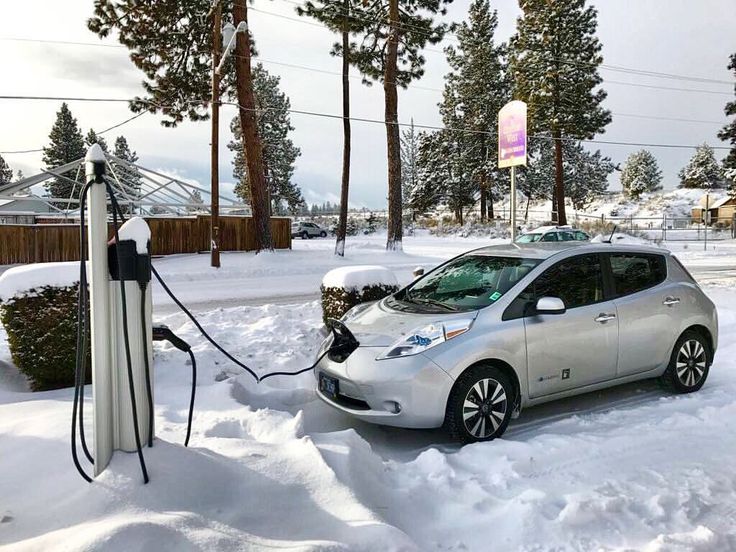We’re excited to announce the launch of the Federal Oil & Gas Lobbying Bot, @FedLobBot on Twitter! The bot has been put together by Environmental Defence to take publicly-available information out of a complicated government website and make it more accessible for everyone. The inspiration for this bot was the BC Gas Lobbying Bot, organized by the Wilderness Committee.
The bot automatically posts on Twitter all recent instances of oil and gas companies lobbying politicians in the Canadian government. In many of these meetings, these companies are trying to block climate action and get more subsidies.
Let’s look at what lobbying is and why it’s important, then at how this bot works and what it tells us.
What is lobbying, and why does it matter?
Lobbying is when someone employed by a company meets with government officials to try to influence policies, government programs, funding decisions, or the awarding of government contracts. Often, it is a company trying to influence the government in order to benefit that company. (See the Government of Canada’s full definition here.) However, organizations like Environmental Defence also lobby the government to improve rules and policies. So not all lobbying is bad.
Politicians can choose who they will accept meetings with. They are under no obligation to meet with and listen to lobbyists.
Oil and gas companies are extremely active lobbyists. The Canadian Association of Petroleum Producers (CAPP) lobbied the federal government a whopping 118 times between January and July of this year, according to The Hill Times. That’s on top of the hundreds of lobbying meetings of individual oil and gas companies over that same time. One group of researchers found that from 2011 to 2018 there were “11,452 lobbying contacts with government officials. This amounts to just over six contacts per working day.” Environmental NGOs (non-governmental organizations) lobbied around one-fifth as much in those years, including on topics related to other matters than oil and gas.
Most people and organizations don’t have the resources to lobby at the industry’s pace, nor does the government give most organizations so much access.
How has oil and gas lobbying shaped Canadian climate policy?
These lobbyists often push against policies which would limit their ability to pollute. And they consistently lobby for more subsidies. Oil and gas lobbyists have been able to delay, weaken or kill every environmental policy. In fact, big oil is the biggest barrier to climate action in Canada.
In addition to being in the ear of politicians and government staff for decades, constantly providing their perspective and trying to drown out climate activists, industry lobbyists have been especially bold during the pandemic. A secret memo from CAPP to the federal government in March 2020 was leaked, revealing how the industry association wanted all sorts of rules and regulations dropped or delayed, including environmental monitoring and new protections for workers in the industry.
How the lobbying bot works
The Federal Oil & Gas Lobbying Bot tweets out each time there is a meeting between Canadian government officials (including civil servants, Cabinet Minister, Members of Parliament and Senators) and representatives of a long list of oil and gas companies as well as their industry associations. The data comes from the Office of the Commissioner of Lobbying of Canada.

There is around a two month delay from the date of the lobbying meeting and when the bot tweets it out, as the information takes time to be posted.
The bot doesn’t tell us the exact content of those meetings. In Canada, what is said in lobbying meetings does not need to be reported. Lobbyists only need to note which general topics they discussed.
What the bot’s tweets tell us
With this bot, we see which companies are active, and who they are targeting.
If a company is proposing a new offshore oil project requiring federal approval, and we see the company is meeting repeatedly with federal ministers like Minister of Environment and Climate Change Canada Steven Guilbeault, we get a sense of how they are trying to influence the government.
The bot also shows which elected officials and parts of the civil service are willing to meet with these companies.
Journalists, activists, researchers, and organizations seeking more information and access to the full data set, please be in touch with me at dgray-donald@environmentaldefence.ca.









